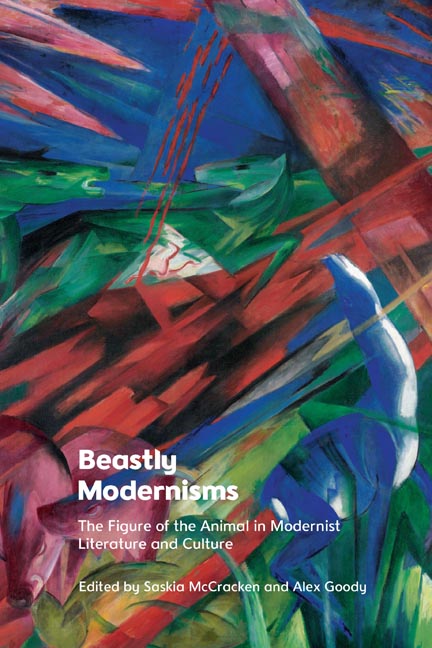Book contents
3 - Canine Companions, Race and Affective Anthropomorphism in Florence Ayscough’s The Autobiography of a Chinese Dog (1926) and Mary Gaunt’s A Broken Journey (1919)
Published online by Cambridge University Press: 21 October 2023
Summary
In Flush: A Biography (1933), an underdog work that recently entered the modernist canon (Ryan 2013: 132), Virginia Woolf configures the ways that bordercrossing journeys can lead to agency, conflating Elizabeth Barrett Browning’s newly found freedom with that felt by Flush, a cocker spaniel. After being released from a box to which he was confined while travelling from London to Pisa, Flush dashes across the street to explore Italy. With each fresh sensory experience comes a sense of change. ‘And just as Mrs Browning was exploring her new freedom and delighting in the discoveries she made, so Flush too was making his discoveries and exploring his freedom,’ Woolf writes (Woolf 2016 [1933]: 76). Flush, a ‘snob’ and an ‘aristocrat’ back in Victorian upper-class London, becomes ‘daily more and more democratic’ in this new world (76). The ‘moment of liberation’ comes with an epiphany as he runs and races, his ‘coat flashed’, ‘eyes blazed’ – ‘He was the friend of all the world now. All dogs were his brothers’ (77). Class and species boundaries disintegrate. Flush’s canine subjectivity, along with travel as a trope of agency, serves allegorically and anthropomorphically in Woolf’s ‘ironic critique of Victorian constructs of class, rank, and gender relationships’ (Ittner 2006: 189). Woolf is not alone in this regard. In fact, seven years prior to Flush: A Biography, Florence Wheelock Ayscough (1878–1942) employed elements of anthropomorphism to create a canine protagonist who, unlike Flush, who does not speak, has his own voice, to serve a similar and yet different cause.
In Ayscough’s The Autobiography of a Chinese Dog (1926), Yo Fei, a Chinese dog who crosses the Pacific from Shanghai to New Brunswick, Canada, also enjoys the freedom and excitement foreign travels and new sensory experiences can offer. Amid the ‘aromatic scent of spruce trees and balsams’, Yo Fei, the narrator, tells us ‘I dashed about, my tail uncurled, and rolled in [the snow] with joy’ (Ayscough 1926: XIII).
- Type
- Chapter
- Information
- Beastly ModernismsThe Figure of the Animal in Modernist Literature and Culture, pp. 56 - 72Publisher: Edinburgh University PressPrint publication year: 2023

